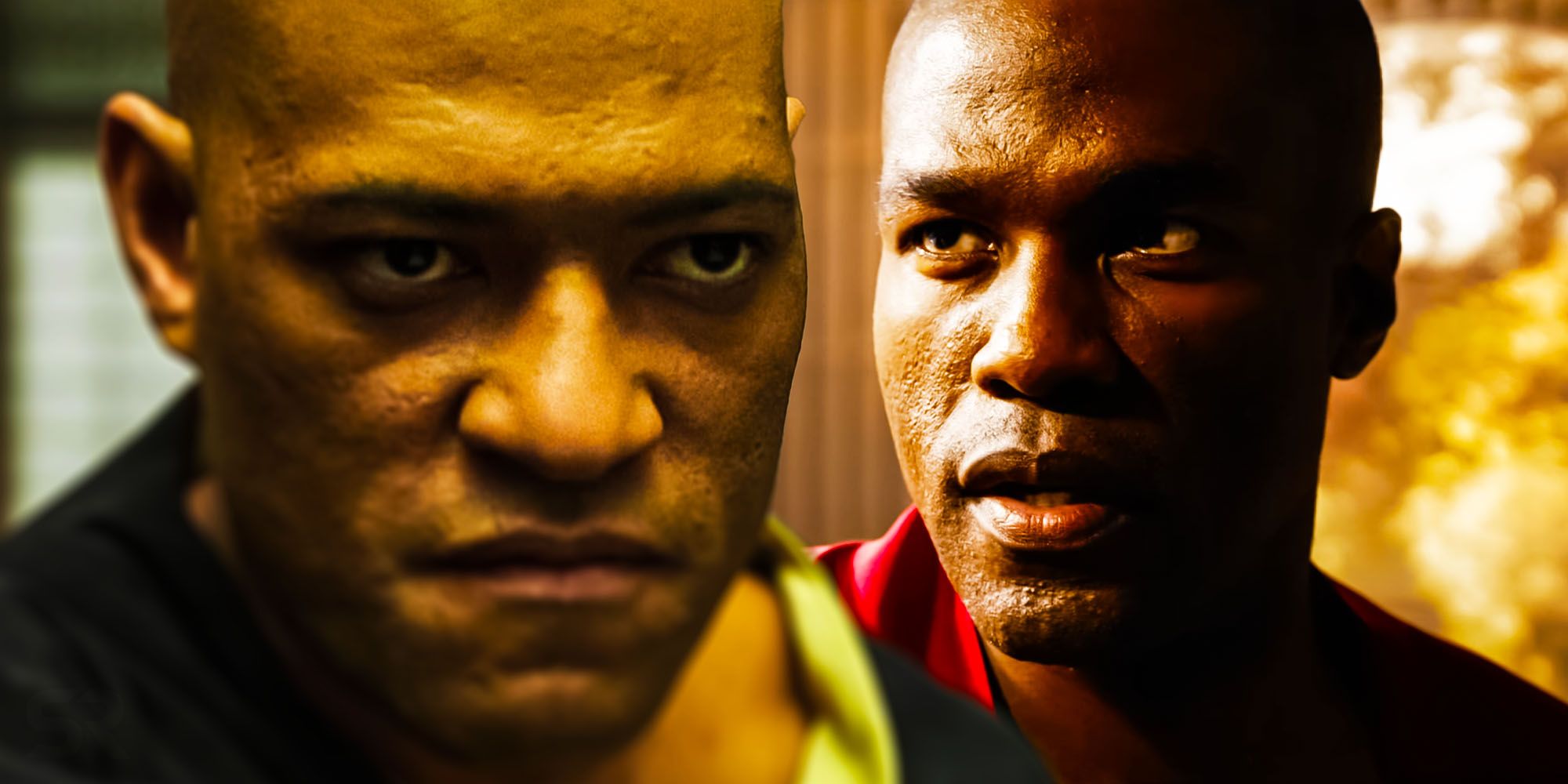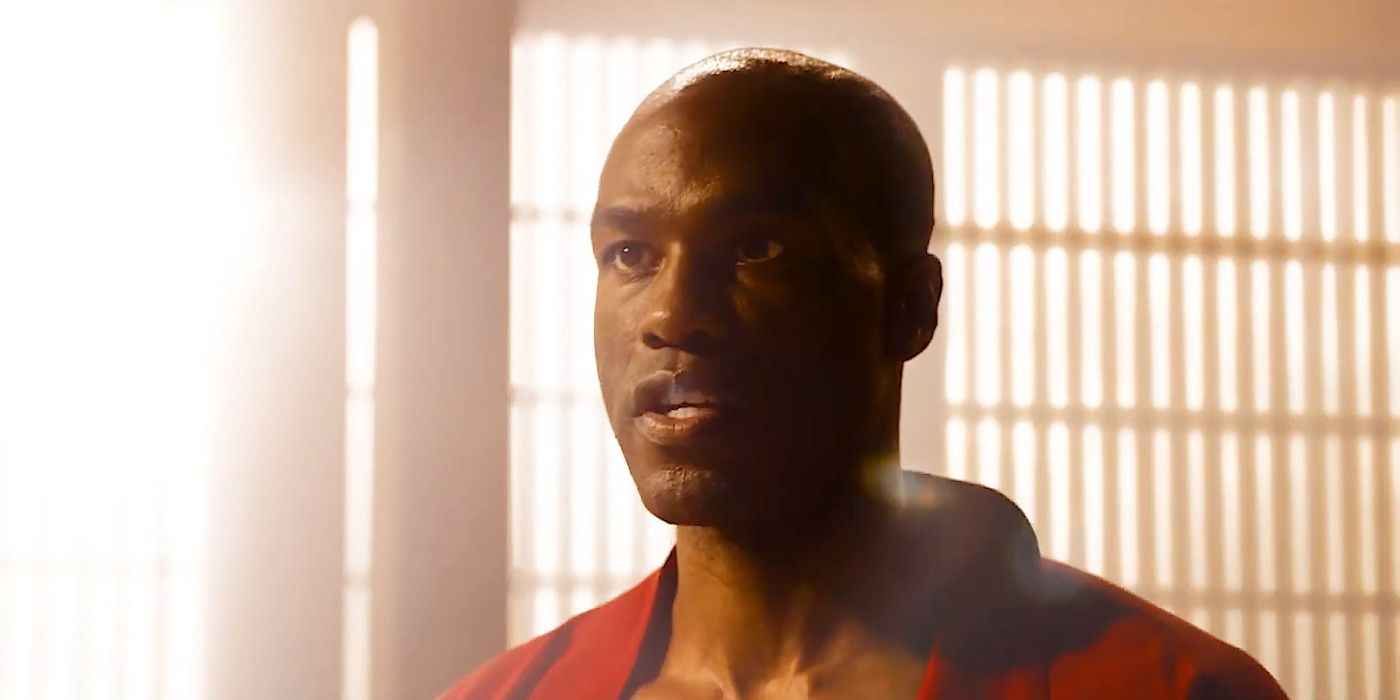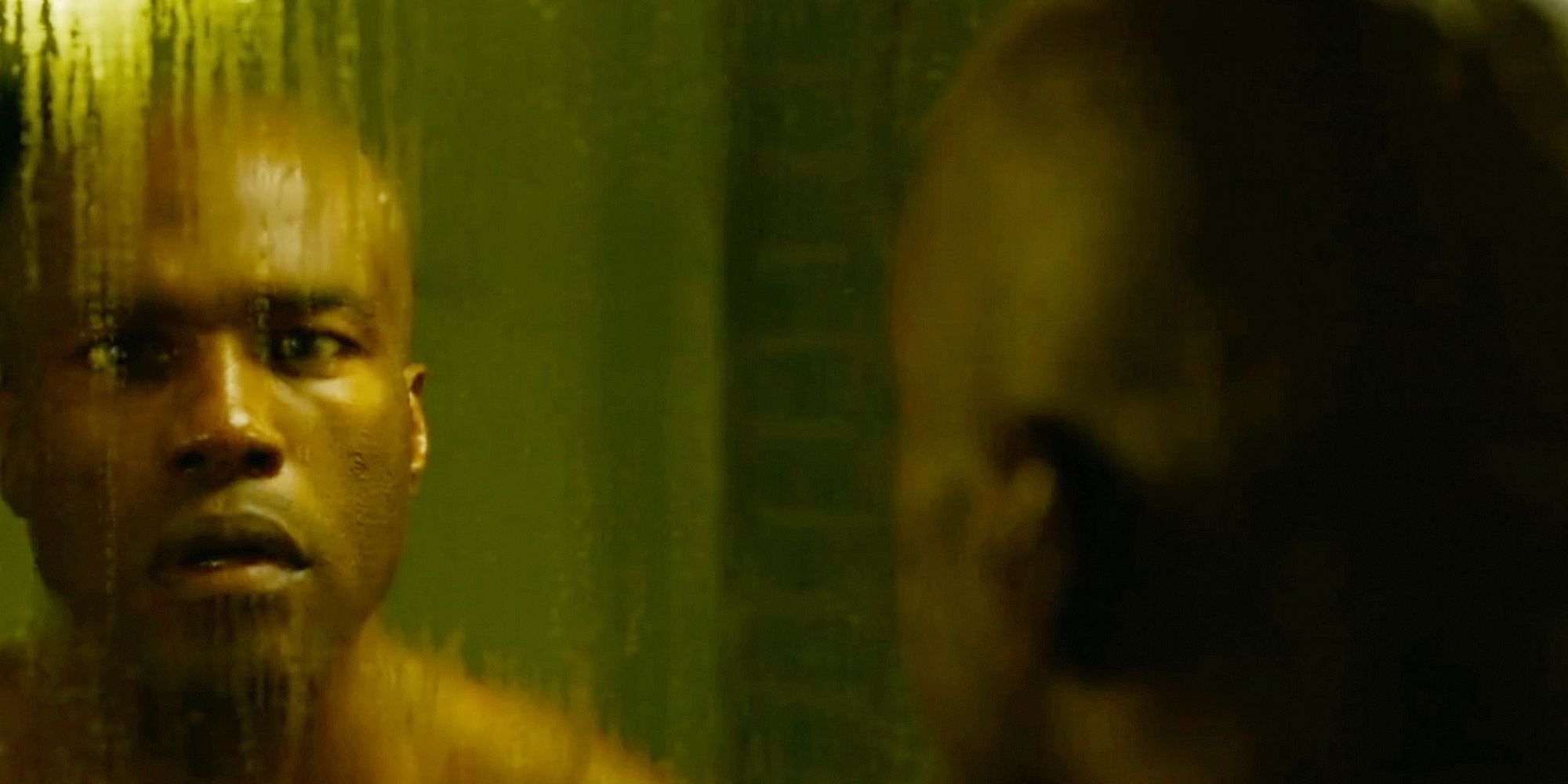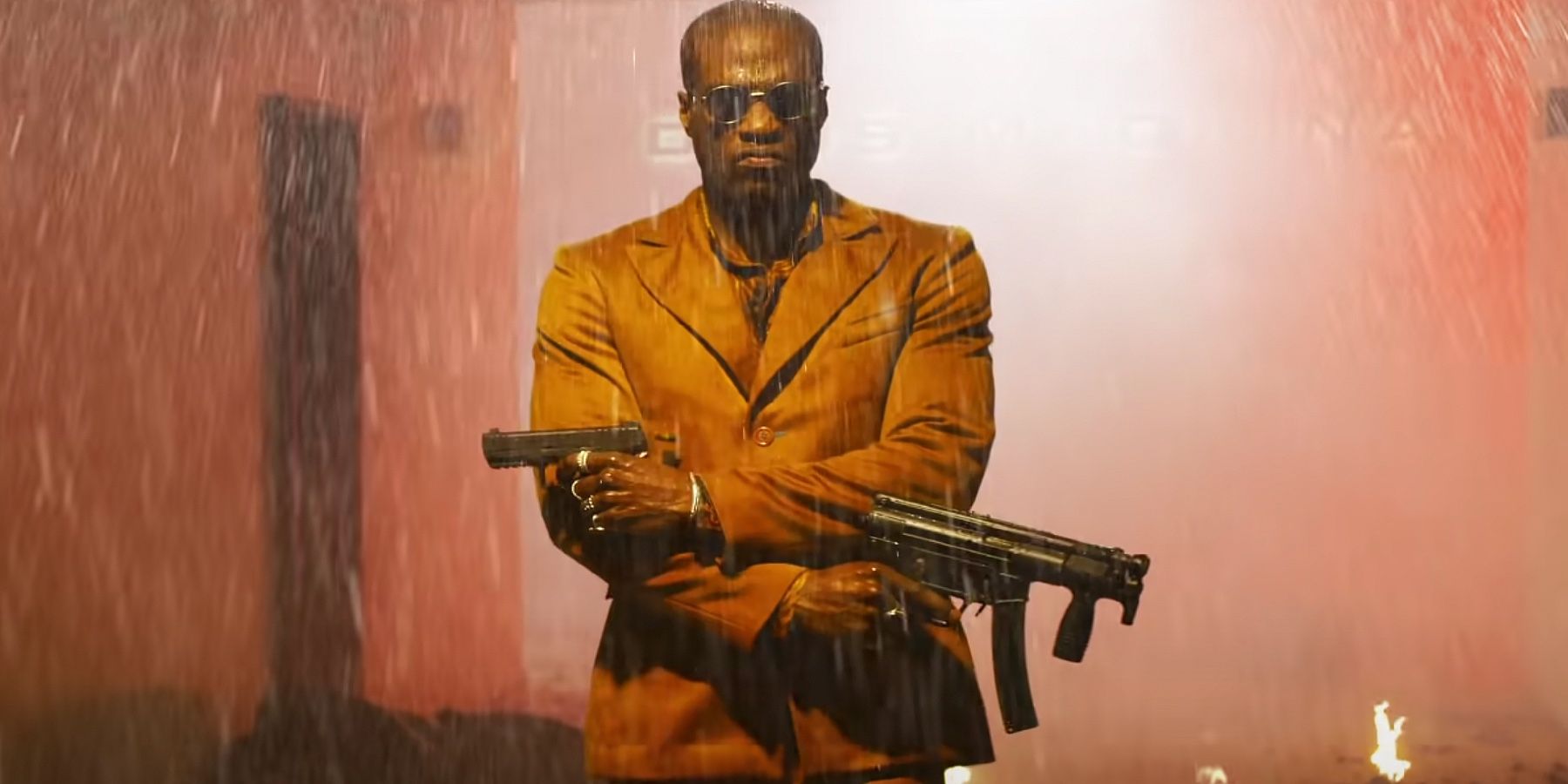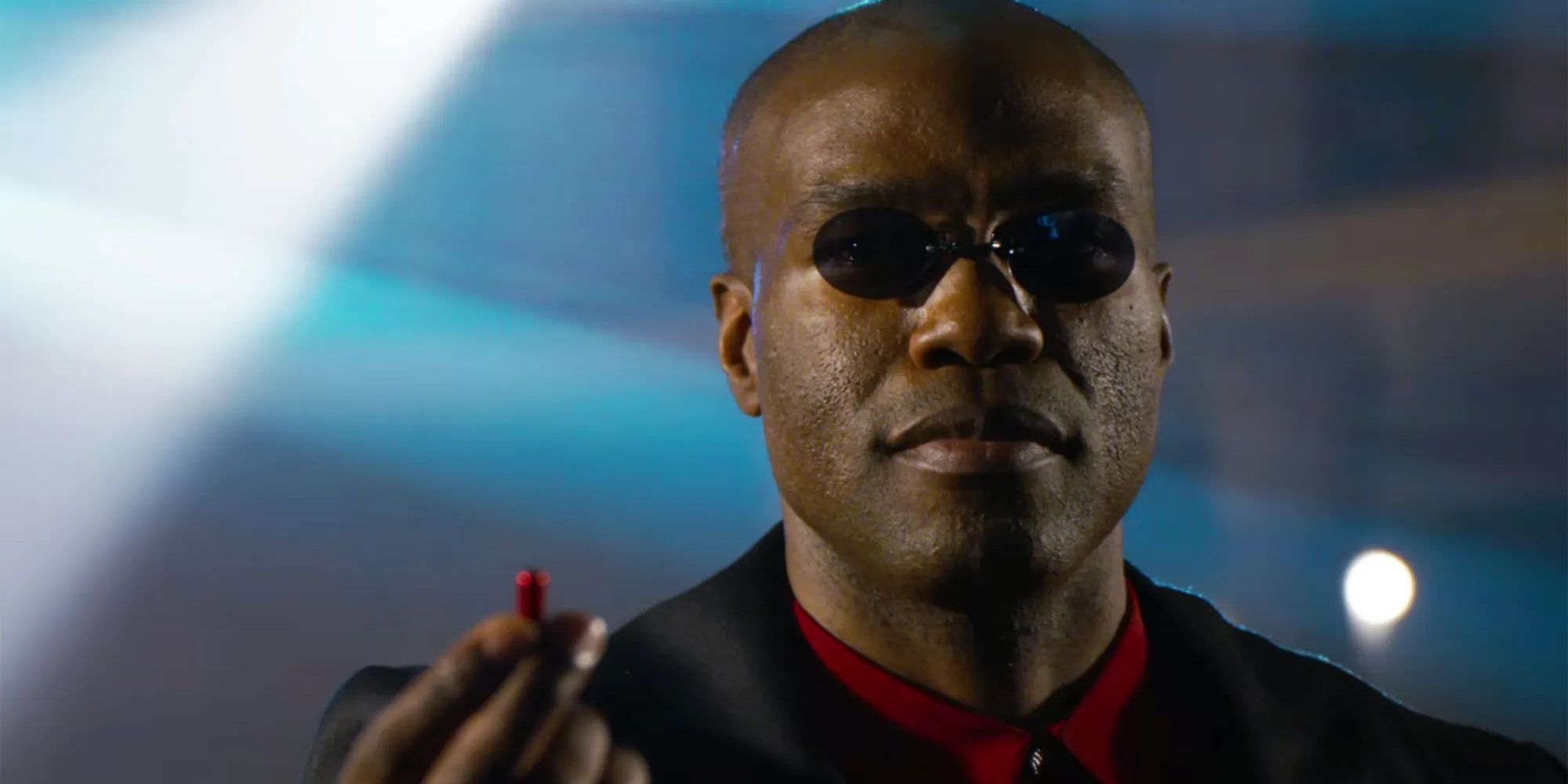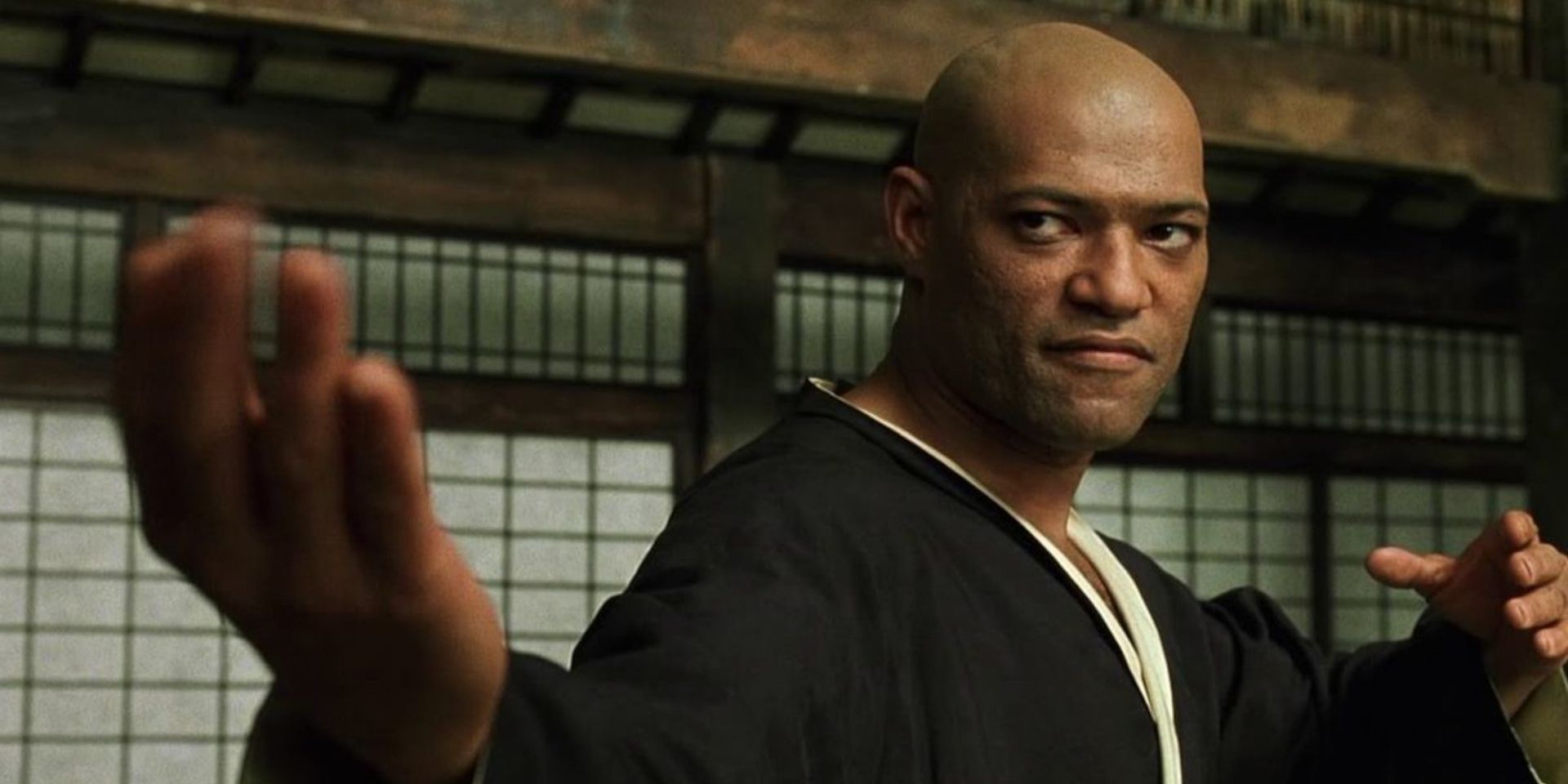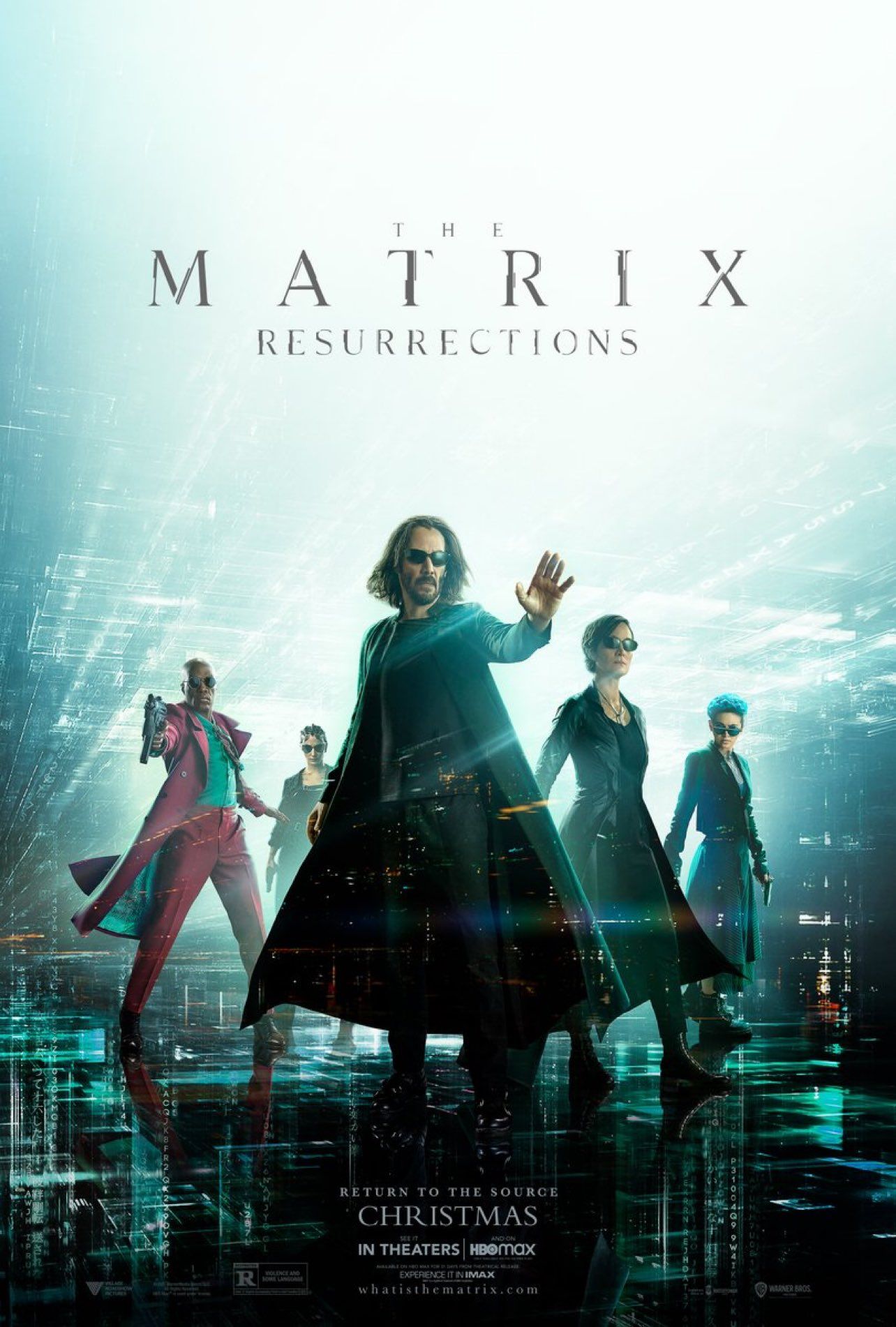Despite many returning faces, theories abound as to why The Matrix 4's Morpheus isn't the same character who appeared in the original trilogy. The Matrix Resurrections is set to bring back Neo (Keanu Reeves) and Trinity (Carrie-Anne Moss) some 22 years after the pair first redefined the parameters of the sci-fi action genre in the Wachowski sisters' blockbuster film. However, one character who appears to have been recast is Morpheus, with Yahya Abdul-Mateen II taking over the role from original actor Laurence Fishburne.
Set 20 years after the climactic events of The Matrix Revolutions, The Matrix Resurrections sees a seemingly revived Neo living under his original moniker Thomas Anderson. Thomas walks the streets of San Francisco in a blissful yet confused state as his psychiatrist (Neil Patrick Harris) prescribes Neo mountains of blue pills. A new look Morpheus, however, changes everything, offering Neo the iconic choice between the red pill or blue pill and reopening The One's mind to the world of the Matrix in the process.
Yet despite Morpheus' apparent centrality to the story of The Matrix Resurrections, it remains unclear why Morpheus isn't the same character from the original Matrix trilogy. The vast trove of online ideas on the subject range from Abdul-Mateen's Morpheus being a malicious artificial construct all the way to the sequel's young Morpheus being just a memory of Neo's. Here's every theory explaining why The Matrix 4's Morpheus isn't the same character as before.
Time Travel
One of the most popular young Morpheus theories to date is that Morpheus is traveling in a non-linear fashion to reawaken Neo from his Matrix-induced slumber. The 20-year gap in between Revolutions and Resurrections means the incredibly wise Morpheus could well have used his time to develop new techniques to combat the rising threat of the agents once again. In the sci-fi movie setting of the Matrix simulation, there is absolutely no reason why Morpheus could not have found a way to move between timelines in an effort to awaken more humans to their true reality, particularly given Resurrections' premise, which centers around Neo returning from certain death at the of The Matrix 3.
A Malicious Program
Other theories choose not to take Morpheus' new visage at face value, with the idea growing in prominence that young Morpheus is, in fact, a program designed to trap The One. To date, there has been no official reason given by The Matrix 4 camp as to why Fishburne is not returning as Morpheus, with the actor himself going on record to state he simply was not asked to return to the franchise. This ambiguity has birthed the idea the Morpheus shown in The Matrix Resurrections trailer is, in fact, a program designed to trap Neo and prevent him from awakening and opposing the machines once again. This theory is further solidified by the events of The Matrix Online videogame, in which Fishburne's Morpheus is assassinated for resisting the Machines and demanding the return of Neo's body following his death in The Matrix Revolutions. This leads to the creation of a fake Morpheus program designed to restart the conflict between Humanity and the Machines.
While The Matrix franchise has re-cast characters before in a few instances, these changes have only introduced programs, with no human characters recast before Morpheus. One key example is The Oracle (Gloria Foster), whose character was poignantly replaced by Mary Alice for The Matrix Revolutions following Foster's untimely death. To get around this continuity issue, the recast character was displayed as a program built within the Matrix. The same is true of Agent Smith, with rumors persisting that Jonathan Groff will take over the mantle of The Matrix's primary antagonist from Hugo Weaving. If this is the case, this pattern strongly suggests the new, young Morpheus in The Matrix Resurrections is also a program in keeping with the pre-established rules of The Matrix franchise.
Morpheus Flashbacks
While some theories are of the more intricate variety, a simple explanation for the presentation of a younger Morpheus is that Abdul-Mateen's character seen in the trailers is simply a flashback of Morpheus' early years as a freedom fighter. It is stated time and again throughout the original Matrix trilogy that Morpheus was a vital factor in growing the last human city of Zion, meaning the young Morpheus seen in The Matrix Resurrections previews could simply be fleshing out his character's illustrious history. The cultivation of Morpheus' reputation within the Matrix as a major threat to the machines would certainly provide additional context for the universe's power struggle within both the Matrix and the real world. It would also build upon the rich canon established across the original film trilogy.
An Alternate Image
It has also been put forth the young Morpheus witnessed in The Matrix Resurrections' trailers is simply an alternate image being projected by Morpheus, which moves around the machines' complex simulation. Just as the agents can change forms at will, or how Mouse (Matt Doran) programs The Red Lady to walk around in The Matrix, Morpheus could well have altered his image to project a younger iteration of himself while plugged in. As there is little by way of plot points to definitively suggest the true purpose of young Morpheus, an altered look is just as viable an option to breathe fresh impetus into the character as any number of these suggested more complex character changes.
A New Heir
Abdul-Mateen's recent comments suggest there may be a more compelling explanation to Morpheus' new iteration. Abdul-Mateen states his character is on a "journey of self-discovery" and that The Matrix Resurrections is ultimately about "defining your own path." This suggestion, therefore, could mean Morpheus is not a character name at all but rather a title that passes from person to person. This theory would make sense on the basis that Fishburne's Matrix iteration has truly died at some point in between Revolutions and Resurrections, with Abdul-Mateen playing a new character who must live up to the legend of the man who came before. In this way, Morpheus can be viewed as a shepherd-like figure who cultivates The One and appears in every cycle of the Matrix prior to a reboot. This theory not only deepens the lore of a beloved character but also does not cheapen Fishburne's Morpheus portrayal in a way that some other The Matrix Resurrections young Morpheus theories appear to.

